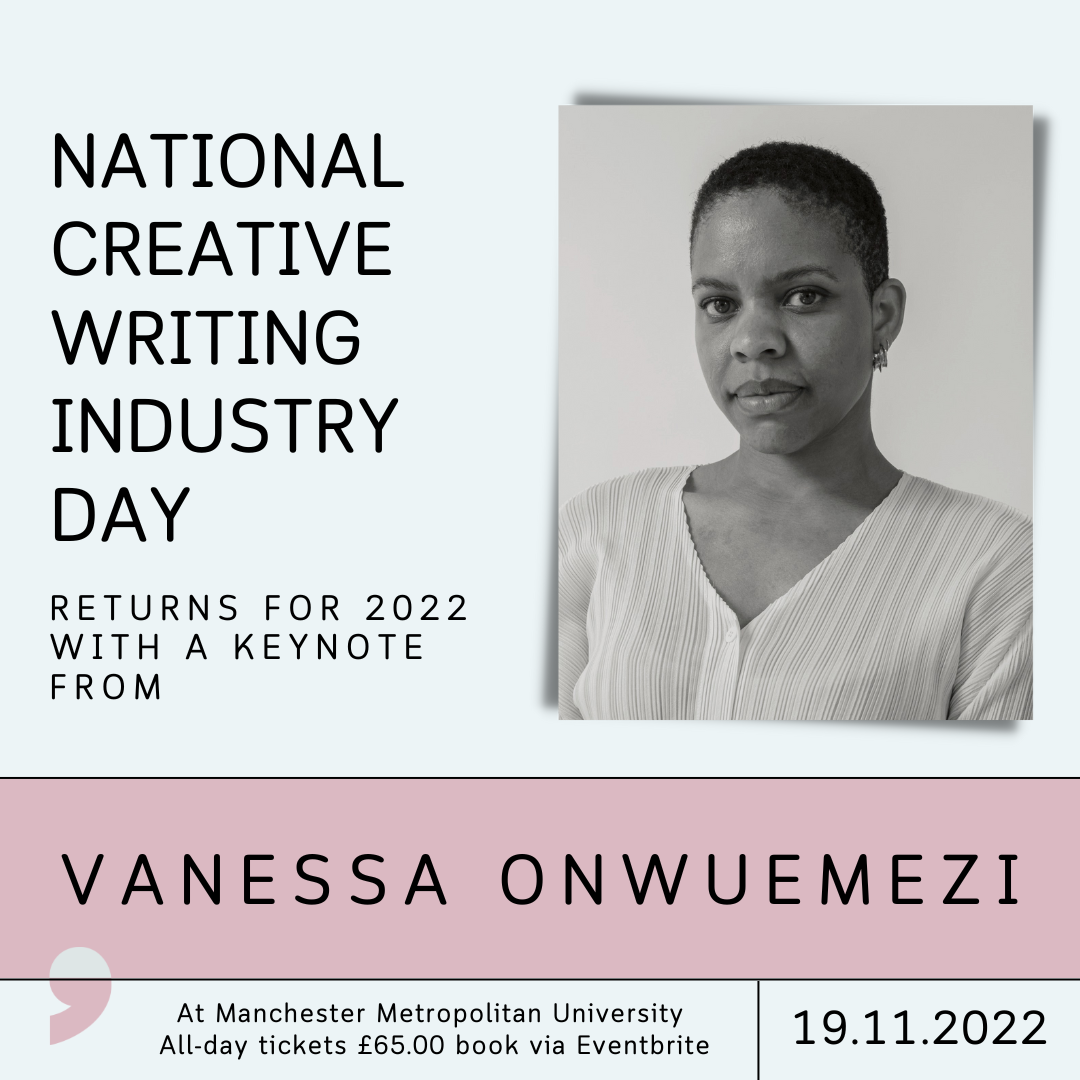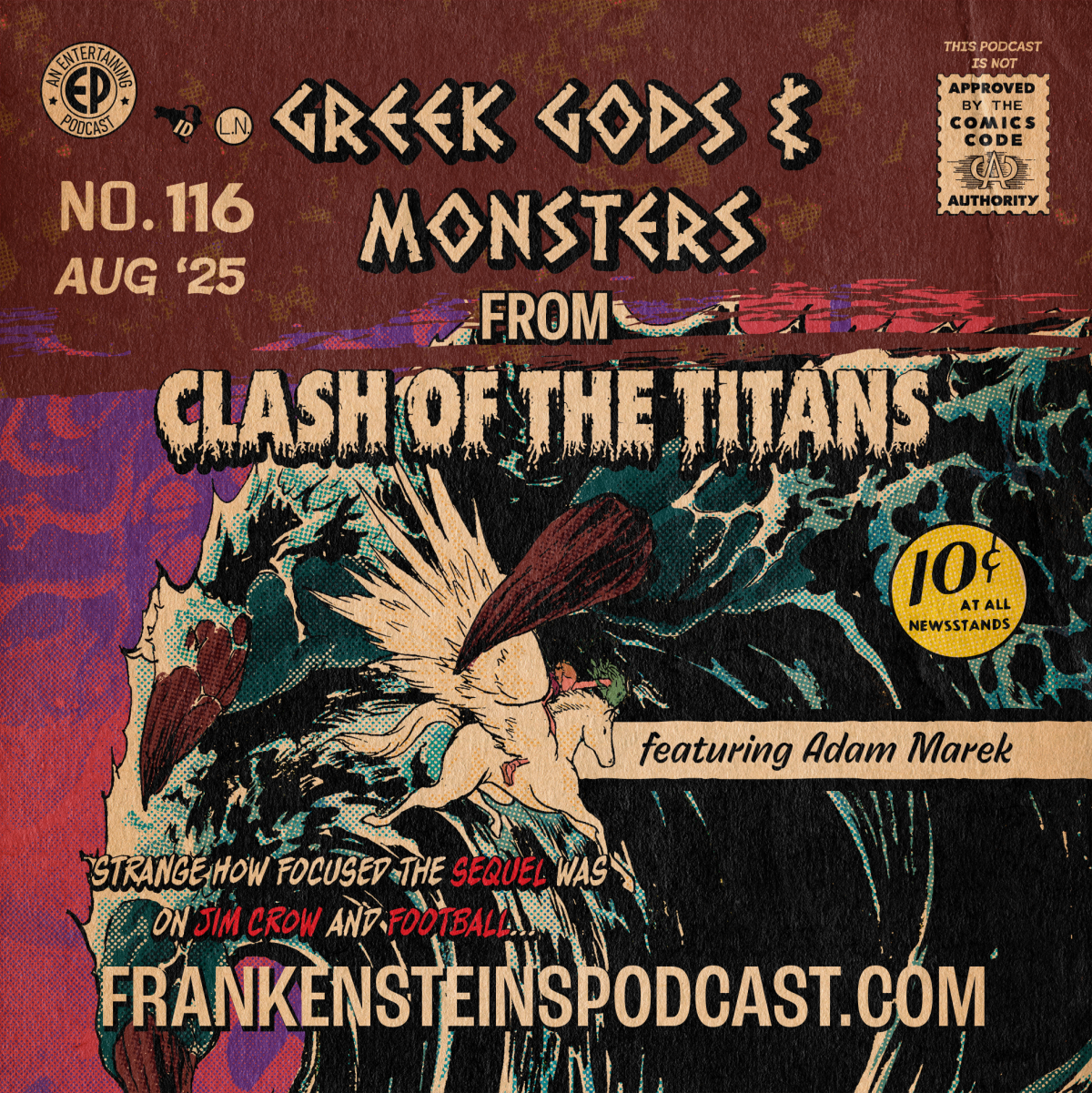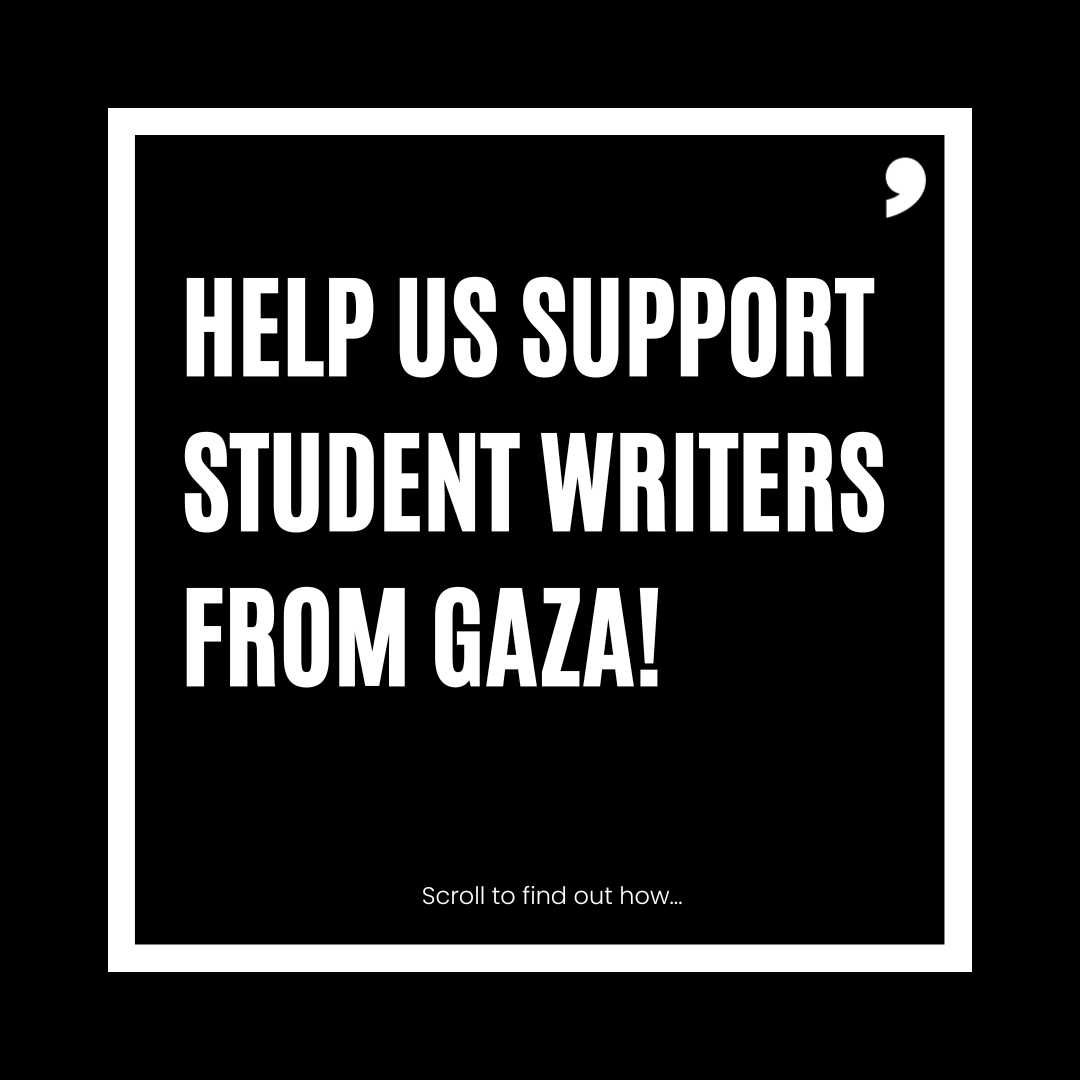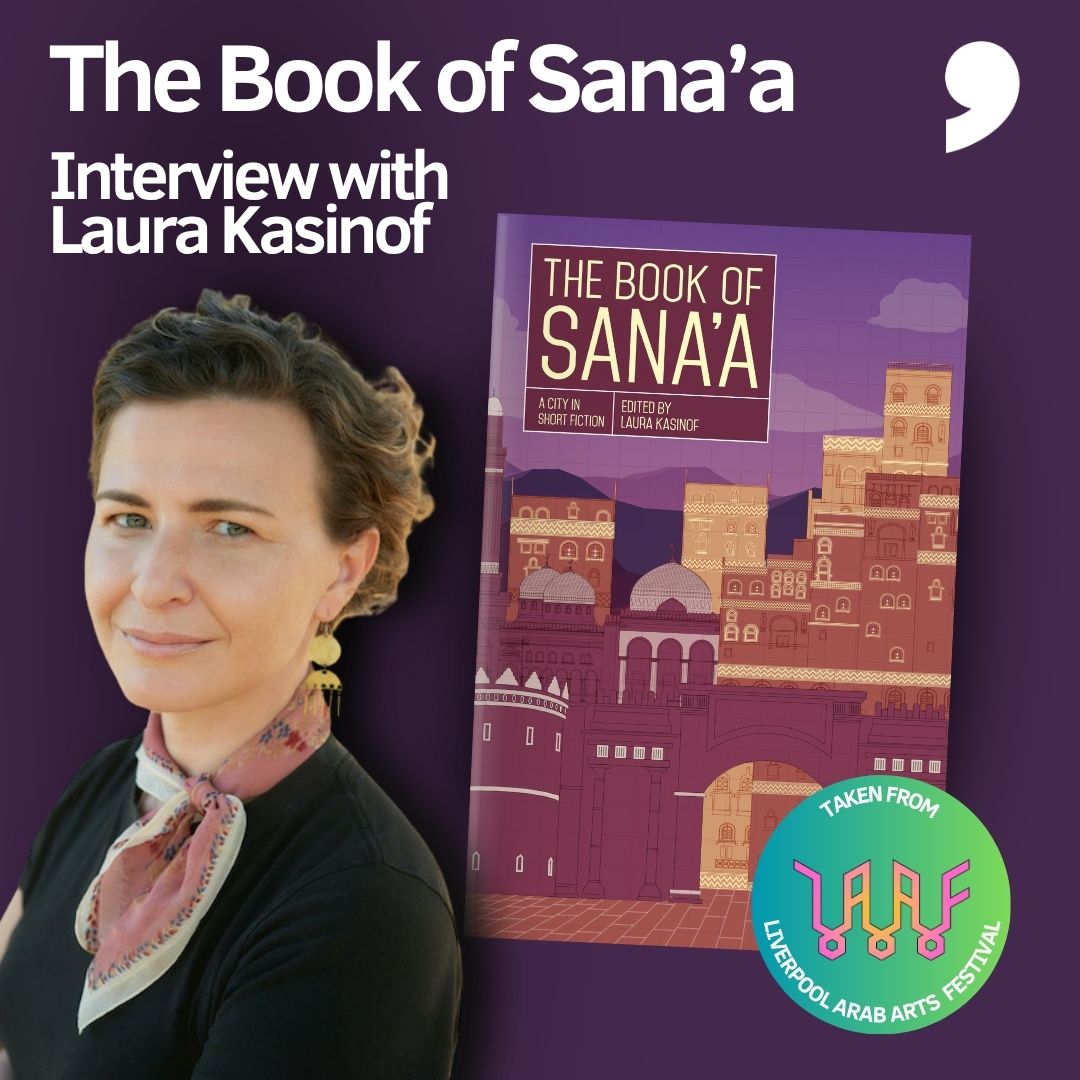Vanessa Onwuemezi: Q&A
In November, Comma Press will welcome back the annual National Creative Writing Industry Day at The Writing School at Manchester Metropolitan University.
Now in its sixth year this annual conference, the largest of its kind outside of the capital, brings together creative writers at the start of their careers for a full day’s programme of panels, workshops and advice from agents.
This year’s programme features a keynote from Vanessa Onwuemezi, writer and poet who has recently been shortlisted for the BBC Short Story Prize 2022. Onwuemezi was awarded The White Review short story prize in 2019 and her debut short story collection, Dark Neighbourhood, published by Fitzcarraldo Editions, in 2021 was named one of The Guardian's best books of 2021. It was shortlisted for both the Republic of Consciousness Prize and the Edge Hill Prize in 2022.
We asked Vanessa to talk a little bit about her writing journey, the magic of short stories, and advice for any writers feeling stuck.
When did you first start writing and what has that journey looked like from beginning to where you are now?
I first picked up a pen just under a decade ago, but I’d say that the journey began some years before that. I’d chanced upon a copy of Orlando, Virginia Woolf, and read it at quite a turbulent time in my life at the age of 23, which is a turbulent time for many who are trying to work out who they are. So this book in a sense found me at the right time, and it opened my eyes to what literature, good literature, could really be. I can’t say I thought about writing at that point, I moved to Paris, and over time stories, words, poetry began to float into my mind. There was a dovetailing of my natural curiosity, my struggle to understand myself and in so doing understanding other people, the world, and the discovery of literature’s ability to give words to this interior world. So I’d say that before writing there is this desire, this preparatory time which is like a fertiliser for the ground, essential for its growth, as significant as the writing itself.
In between those early days and now, I did an MA in Creative Writing at Birkbeck, which gave me confidence and a supportive group of writer friends as well as a small collection of writing, traces of which have made their way into my first collection, Dark Neighbourhood. I learned the value of good criticism, and how it has helped me to grow as a writer and the fact that the only way to grow is to write things over and over again. Being workshopped also reminds you to have the courage of your own convictions too, you have to follow your own path, you can’t compromise your vision by attempting to follow what’s popular or trying to write like someone you’re not.
In 2019 I won The White Review short story prize, so I had a confidence boost and some money after mostly being rejected by the literary magazines I was submitting to at the time. I did a lot of work on Dark Neighbourhood during 2019 and the lockdowns of 2020, I wasn’t entirely sure that anyone would want to publish the book I had to offer, but it felt worthwhile to me. My current publisher, Fitzcarraldo Editions, got in touch after I published a story, Bright Spaces, in The White Review. Once I’d finished the collection I sent it to them, and some agents, many of whom had been in touch after I won the prize. None of these agents actually ended up being my agent as for most the book wasn’t for them, but they were generous with advice and words of encouragement which I really appreciate. It was a colleague of an agent I had submitted to that read the work and loved it and is now my agent. Fitzcarraldo was in touch soon after with an offer.
Your prose style often features huge gaps and line breaks throughout a story, why is that?
There’s an aural, rhythmic element to my work that sort of snuck in. I read everything aloud as I write and began to incorporate the gaps as a way to slow the prose down, or instigate a pause at an odd place in the sentence. It was the only way I felt able to do this. There is also a visual element to it, much like line breaks in poetry there is emphasis on certain words.
Your story ‘Green Afternoon’ was recently shortlisted for The BBC National Short Story Award 2022 (congratulations, by the way). Could you talk a little about where the inspiration for this story began?
Thank you, I think this story is a confession of sorts. An admission of guilt. I live in London, this story draws on some of the problems I’ve been witness to during my life in this city, growing inequality but also social mobility over generations of immigrant families which is less talked about in the discourse on race, violence as sanctioned by the state, and then sanctioned by individuals in the name of protecting whatever they have, senseless violence that one tries to make sense of. There is a consuming sense of guilt hanging over our society, and I do feel that Green Afternoon was, in part, a way for me to have this feeling out in the open at last. In addition, I was inspired by Tutuola’s The Palm Wine Drinkard which lent me imagery, pace and its surreal, playful style.
What do you like about writing short stories as opposed to a longer form?
Speed! And that they lend themselves to ambiguity, the kind of ambiguity that poetry does so well. My favourite short stories leave me with a sense of mystery, they tell me something I didn’t already know. Many of the first pieces of writing that really struck me to the core were short stories, Borges, Jayne Anne Phillips, for example and my MA was based around workshopping short stories, so naturally I carried on experimenting with that form.
What does your editing process typically look like?
I’ll write a complete draft, slowly, say 200 words a day. Once I have the draft I’ll go back and read it aloud and refine it: the punctuation, cutting out superfluous sentences and overwriting, shaping the text rhythmically into something that sounds right.
Then I’ll show it to friends when ready. I workshop every week, more or less, with a group of writer friends. They’ll give me feedback and then I will usually leave it for a couple of weeks before opening the draft again, reading their feedback and making my own notes of what I need to change. I’ll act on any feedback that resonates with me and things that come up as issues for people again and again.
Usually after this edit, depending on how extensive it is, I will leave the piece again for months ideally and take it out again, read it with fresh eyes and go through another edit.
Do you have any standout advice for writers who are writing with the hope to get published?
It may perhaps seem contradictory, but it’s best not to focus too much on being published, of course keep it as a goal if that is a goal of yours, but the writing should itself, for me, comes first. When I had received my first rejections it comforted me to realise that I could always write and even if no one ever wanted to publish my work nothing could prevent me from writing, that was enough. It was the most important lesson for me, to always make the work you are doing itself, the writing, the primary concern, and to know that your work is worth publishing even if you’re met again and again by rejection. If you don’t know whether your work is worth publishing ask yourself why: are you waiting to be told it’s worthwhile by someone else before believing it yourself? Or could it do with improvement?
That aside, practically, it helps to be clear-sighted about your work and where it might fit, so as you work on your craft, pay attention to which parts of the industry you’re drawn to, are the writers you like published by smaller presses, or larger more commercial ones and how does your writing compare? New publishers and imprints are entering the scene all of the time. For me, it helped to follow some literary prizes that I respected, meaning that the work they were rewarding was the work I enjoyed reading and aspired to write.This introduced me to new writers and also their publishers and agents, and gave me a better sense of who was ‘out there’. You don’t need to win a prize to be published eventually, but if you do want to enter them I found it a better strategy to again find those prizes that you respect and enter them year after year rather than spreading the net (and yourself) wide.
Compile a list of agents over time, look in the acknowledgements sections of books you like and the writer may have mentioned their agent there, pay attention to who is judging the prizes you like as agents often judge them. Look at other agents at their agencies as well, there may be someone there who is newer and therefore building a list. Smaller publishers will often welcome unagented submissions, however, so if you’re looking at independent publishers consider this as an option. Don’t be afraid to reach out to them or speak to them at events if their submission processes aren't clear. I kept a spreadsheet of literary magazines, prizes and publishers. I wasn’t anywhere near actually looking for a publisher when I started the document but over time I built up quite a bank of information which I shared with writer friends, so when I needed it it was there. Don’t forget to support the other writers around you, it comes back to you tenfold.



